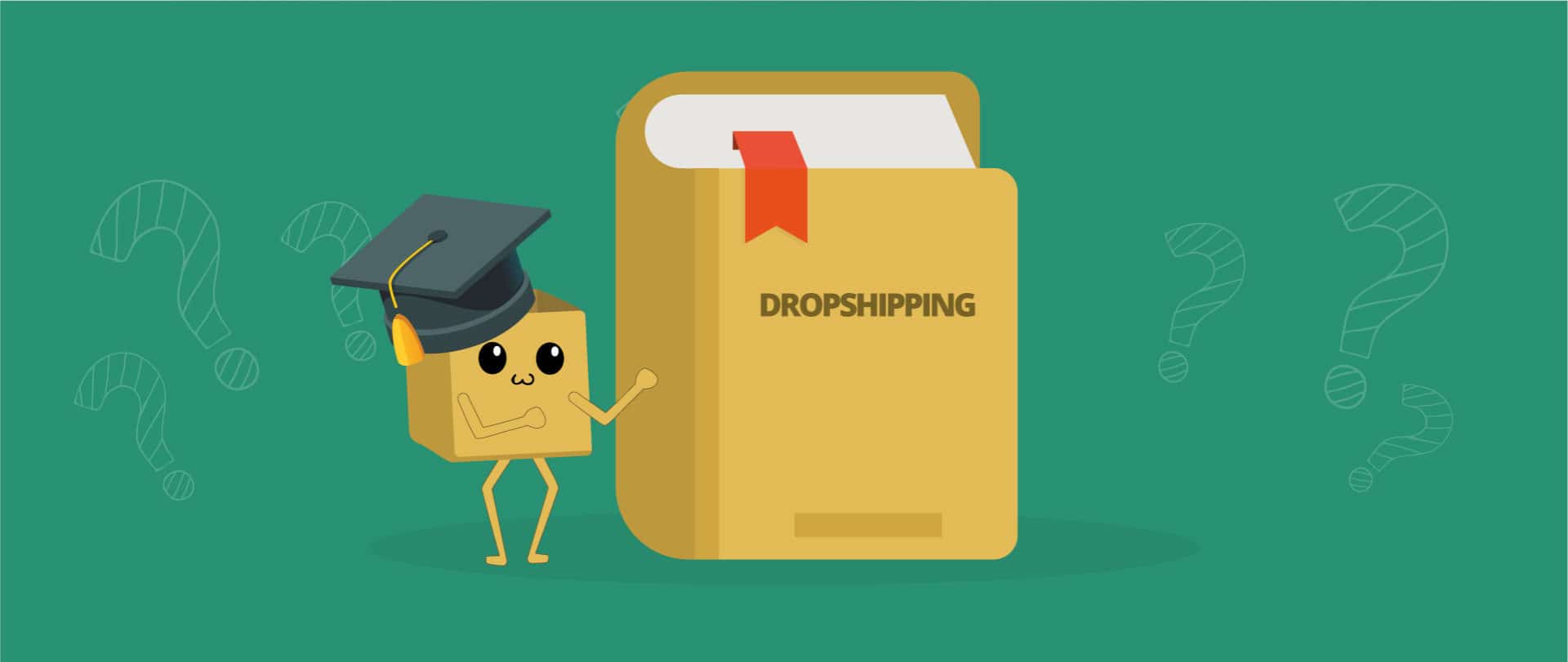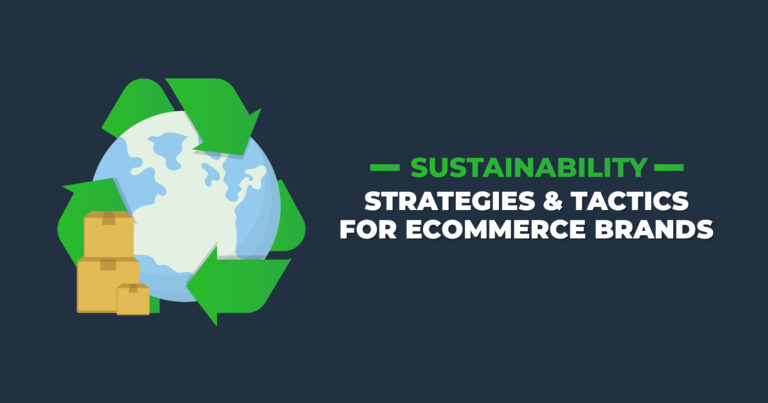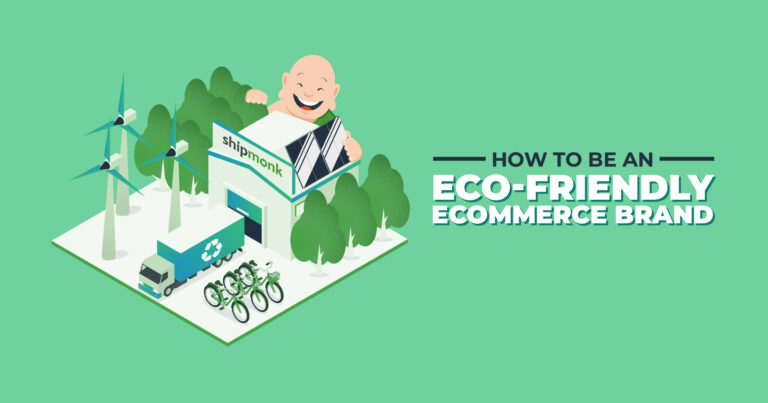What Is Dropshipping and Is It Best for Your Business?
For online retailers, there are a multitude of options for fulfilling orders. If you’re new to selling products online (or simply doing your research), it’s extremely important to figure out which business model is best for your goals. In this article, we’ll cover the difference between dropshipping and other order fulfillment options. We’ll also detail the pros and cons of each order fulfillment method, so you can decide which option is right for your business and needs.
Before we dive in, let’s clarify a few definitions of the key terms you’ll need to understand:
- Order fulfillment refers to the system of receiving orders, then processing the order, and delivering it to a customer.
- Merchant fulfillment refers to the process of a seller managing their own order fulfillment process. This involves the merchant (seller) buying their own inventory, storing their products (in a warehouse, storage facility, or even in a home), processing orders, and shipping products to end customers.
- Third-party fulfillment refers to the process of outsourcing order fulfillment to a separate entity. This option still involves the merchant (seller) buying their own inventory. However, in this case, the merchant stores their products in a warehouse owned by a third-party fulfillment company, which manages the process of storing inventory, processing orders, and shipping products to end customers.
- Dropshipping refers to a far more hands-off process for the seller. In this case, the seller markets products and collects orders from customers at a retail rate. Once an order is received, the seller forwards a sales order to the product manufacturer at a wholesale rate. Then, the manufacturer processes the order and ships the products to the end customer. The seller charges a retail price, allowing them to keep the profits from their sale, while they outsource the rest of the process to the dropshipper (supplier). Ultimately, the seller does not have to own inventory or ever touch the products they are selling.
You may be thinking, “Awesome, now I know which option is right for my business!” But there are more details to consider so you can make an informed decision.
Let’s talk about the pros and cons of each order fulfillment method we mentioned above.
Merchant Fulfillment
Pros
- More immediate control of your sales and order fulfillment process. Because you store your own products and manage your inventory, you’ll see when you need to order more of a specific product.
- More control over resolving shipping mistakes. Since you have products on-hand, you can quickly and easily determine how you’ll rectify shipping errors (such as sending the wrong product, items broken in transit, and returned orders).
- Ability to customize orders easily. Want to add in a special gift or a handwritten thank-you note? Since you fulfill orders on-site, you have the power to do as you wish.
Cons
- Requires a substantial investment up-front. You’ll have to purchase your inventory before you can sell your products, and you’ll have to determine where you’ll store your inventory and shipping supplies.
- Requires manual labor for you or your team. Who is going to receive the inventory, process sales, pack orders, and ship the packages? Many small business owners (especially solo entrepreneurs) end up doing it all, which takes time away from other important business activities. What if you or your shipping employees get sick or go on vacation? Without someone on the team to fulfill orders, your business could come to a screeching halt.
- Not easily scalable. This option makes it more difficult to scale your business. Why? Because increased sales will require you to purchase higher amounts of inventory, which requires more up-front costs, larger storage space, and more warehouse workers.
- Requires expertise in many areas. To be successful at merchant fulfillment, you (or your team) must be good at every aspect of running a product-based business: Marketing, sales, operations, supply chain management, inventory management, packing and shipping orders, customer services, processing returns, etc. There are many options for technical solutions, such as CRM systems; however, it still requires you to do the work yourself or hire people to fulfill the requirements of each of these roles.
Third-Party Fulfillment
Pros
- Utilizes an existing infrastructure. With an existing warehouse (or many), third-party fulfillment companies can allow your business to have products in strategic locations, so you save money on shipping costs. These companies also specialize in order fulfillment, which means they are set up to efficiently handle storage and shipping.
- Utilizes a team of experts. Instead of learning all the necessary skills to be efficient at order fulfillment, you can outsource this responsibility to a team of professionals who understand how to pack orders in a way that keeps shipping costs down and reduces the chance for product damage in transit.
- Enables your business to scale easily. Because third-party fulfillment services have a large infrastructure, they can store more inventory than most small businesses can afford to house. This enables your business to focus on marketing and selling more products, with the confidence of knowing that the order fulfillment process will be handled by a team of specialists.
Cons
- Fees for storage. The reason many small businesses choose to fulfill their own orders is because they want to avoid fees and added costs wherever possible. Some third-party fulfillment companies – such as Fulfillment By Amazon (FBA) – charge high storage fees and even higher long-term storage fees (for slow-moving inventory).
- Less ability to customize orders. Because you’re not hand-packing orders yourself, you lose the ability to add a “personal touch” to shipped orders. For example, you can’t add a handwritten note or draw a smiley face on the package. However, some third-party fulfillment companies do incorporate ways to add a personalized note or add in marketing material such as flyers, stickers, and other bonus goodies.
- Requires a substantial investment up-front. You’ll still have to purchase your inventory before you can ship your products to the third-party fulfillment company or sell them to consumers.
Dropshipping
Pros
- Low investment up-front. In this scenario, you do not need to purchase inventory before you promote it and sell it. You will have fewer costs to launch your business. These costs may include: purchasing a domain and paying for website hosting (if you want to sell products on your own website) – or paying fees to list your products on a marketplace (if you want to sell products on Amazon, Jet.com, or eBay, for example).
- Enables your business to scale more easily. With dropshipping, you can automate many of the processes in your business, such as forwarding orders to the product supplier so they can fulfill the sales orders.
- Location freedom, and low labor requirements. You can truly operate a dropshipping business from anywhere in the world (as long as you have internet access). You don’t have to own or store inventory, and you get to be completely hand-off of most processes. Basically, you’ll be responsible for marketing, selling, and customer service (all of which can be outsourced).
- Low commitment, and diversity of product selection. Want to add a new product to your website? Easy! Want to remove a product from your offerings? That’s easy, too! Since you’re not pre-purchasing inventory, you don’t have to be committed to any specific product. You can sell as many products as you want when you dropship – with relatively low risk.
Cons
- Low profit margins. Because you are outsourcing almost the entire process, the dropshipper (supplier) will charge you for the product, the packing and fulfillment, and the shipping costs. Profits can be extremely low in this business model, making it difficult to truly grow a sustainable business and brand.
- Highly competitive market. Your supplier is serving many sellers, which means you are competing with other brands selling identical products to yours. This can become a “race to the bottom”, where every seller tries to position their product at a slightly lower price until the profit margins become nonexistent for everyone. This creates an environment that is not conducive to developing a strong brand or a sustainable business.
- Less brand loyalty. If your customers can get an identical product from many other sellers, it makes it far more difficult to gain a base of loyal customers and repeat purchases. The cost for acquiring a customer can become very high, and the lifetime value of a customer (the amount of money a customer spends with your business throughout their life) will likely be fairly low.
- No tangible control of your order fulfillment process. Because you don’t have access to your own inventory, you won’t easily know whether a product is backordered by the manufacturer. This can cause lengthy delays in order fulfillment, which can cause a customer service nightmare for your business.
- Less control over resolving shipping mistakes. Since you don’t have products on-hand, it’s more difficult to rectify shipping errors (such as sending the wrong product, items broken in transit, and returned orders). Ultimately, if there is a problem with a customer’s order, you may end up refunding the customer or shipping a brand new order in an effort to keep your customer happy.
- No ability to customize orders. Since you aren’t involved in the order fulfillment process at all, it’s basically impossible to add in a special gift or a handwritten note. You won’t have the ability to add a personal touch to your customers’ orders.
Now that you know the advantages and disadvantages of each order fulfillment method, which method is right for your business goals?



